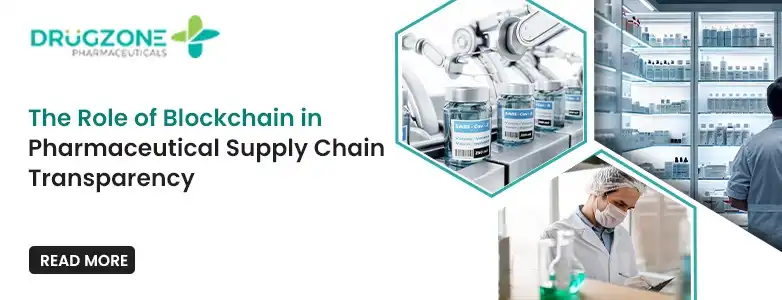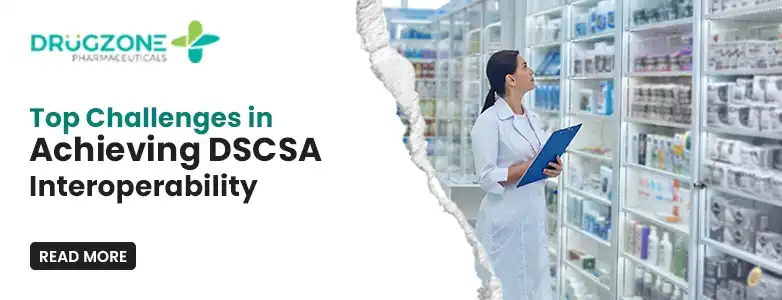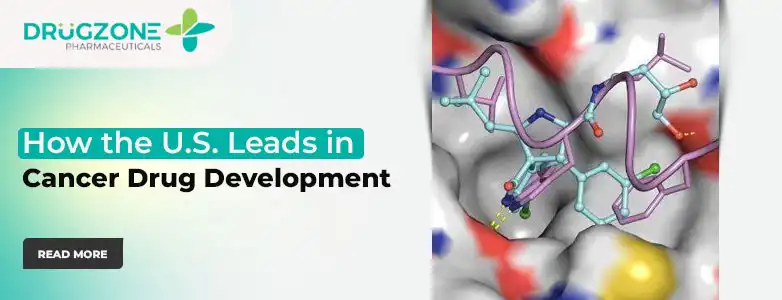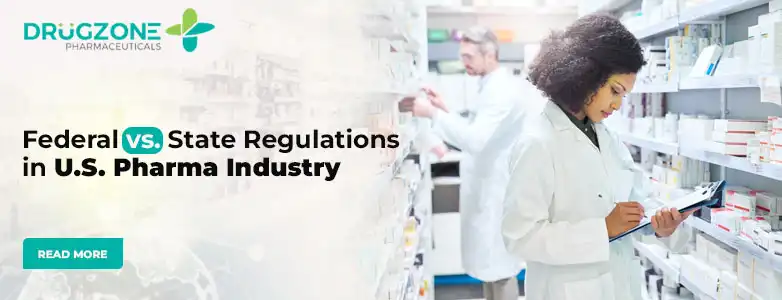
Posted On: December 26, 2024
The Role of Blockchain in Pharmaceutical Supply Chain Transparency
Pharmacy wholesale distributors play a notable role in the pharmaceutical supply chain. However, this sector also faces significant challenges, such as the risk of counterfeit drugs, compliance with complex regulations, data management issues, and the need for enhanced traceability.
The blockchain technology, however, presents a promising solution for addressing these concerns.
Blockchain technology is like a digital ledger or record book that's spread out over many computers. It's used to record transactions or data securely and transparently.
With the help of this technological solution, pharmacy wholesale distributors can improve transparency and accountability, ultimately leading to safer and more efficient operations.
How Blockchain Helps Keep Transparency in the Pharmaceutical Supply Chain
Here are 6 ways blockchain technology upholds transparency!
1. Immutable Record-Keeping
Pharmacy wholesale distributors face constant pressure to maintain precise records. Errors or alterations in these records can lead to substantial issues, such as compliance violations or supply chain disruptions.
With blockchain technology, every transaction is recorded in an immutable ledger that cannot be changed or tampered with. This ensures accuracy and reliability in record-keeping.
Also , the immutability of blockchain helps pharmacy wholesale distributors manage risks associated with record-keeping errors. It provides a reliable source of truth for audits and regulatory checks.
2. Enhanced Traceability
Traceability in the pharmaceutical supply chain is crucial for identifying the origins and journey of each product. Any gaps in traceability can result in inefficiencies and potential health risks.
Blockchain technology allows for comprehensive tracking of each product's path, from manufacturing through to delivery.
Such traceability is particularly beneficial in the event of a recall. Distributors can swiftly identify which batches are affected and trace them back accurately.
Improved traceability also promotes better inventory management and operational efficiency. This further enhances service quality and reliability for pharmacies and healthcare providers.
3. Streamlined Audits and Compliance
Compliance with pharmaceutical regulations is an ongoing challenge for distributors. The industry requires meticulous tracking of operations to meet stringent requirements.
Blockchain simplifies this complex process by maintaining organized and transparent records that are easily accessible for audits.
Pharmacy wholesale distributors can use blockchain to keep up with evolving regulatory demands more effectively.
4. Improved Data Interoperability
A big problem for pharmacy wholesalers is handling data that comes from different places.
Different stakeholders in the supply chain use their own systems, which can cause confusion and make it hard to share information. Blockchain technology helps fix this by allowing everyone to share data smoothly on one platform.
This helps wholesalers get the right and consistent information, which reduces misunderstandings and mistakes. It allows everyone, from manufacturers to pharmacies and regulators, to share information instantly.
5. Reduction in Counterfeit Drugs
Counterfeit drugs remain a persistent threat in the pharmaceutical supply chain, as it endangers patient safety and trust.
Blockchain provides a solution by assigning each drug a unique identifier that's tracked throughout its journey in the supply chain, which makes it difficult for counterfeit drugs to penetrate undetected.
Distributors can use blockchain to check the authenticity of products at each stage, so that only genuine medicines get to consumers. This extra security helps consumers trust the products and keeps distributors safe from legal and financial troubles linked to fake products.
6. Enhanced Collaboration and Trust
Trust and collaboration are crucial in the pharmaceutical supply chain, especially for wholesale distributors who act as intermediaries.
Blockchain offers a transparent and secure platform that fosters trust among all stakeholders. With a decentralized approach to record-keeping and data sharing, blockchain minimizes the risk of fraud and data manipulation.
How Drugzone Works for a Safer Supply Chain
We at Drugzone use the latest technologies to make our supply chain clear, safe, and efficient. With the help of blockchain, we keep a permanent record of transactions, which lets us track medicines in real-time from production to delivery.
Our smart sensors check conditions like temperature and humidity, so that sensitive products stay safe while being transported. Additionally, AI helps us manage inventory better, predict demand, and spot issues before they happen.
These innovations make our operations more efficient, and also assure our partners and customers of the authenticity, compliance, and timely delivery of quality medicines!
Frequently Asked Questions (FAQs)
Q. What is blockchain technology, and how does it work in the supply chain?
Blockchain is a digital ledger technology that records transactions across multiple computers in a way that ensures the information is secure, transparent, and tamper-proof.
Q. Why is blockchain important for pharmacy wholesale distributors?
Blockchain is crucial for pharmacy wholesalers because it enhances traceability and transparency in the supply chain. This is important for ensuring that medications are authentic, have not been tampered with, and meet all regulatory standards.









